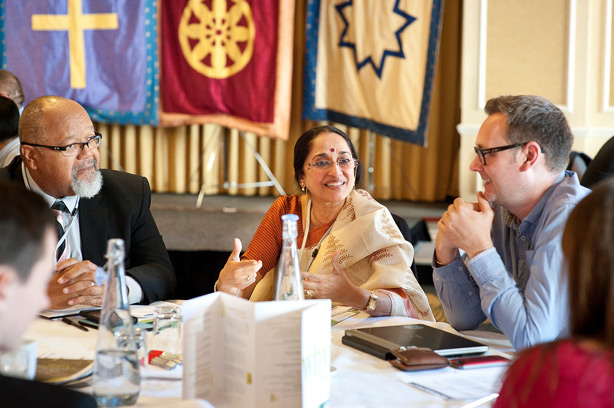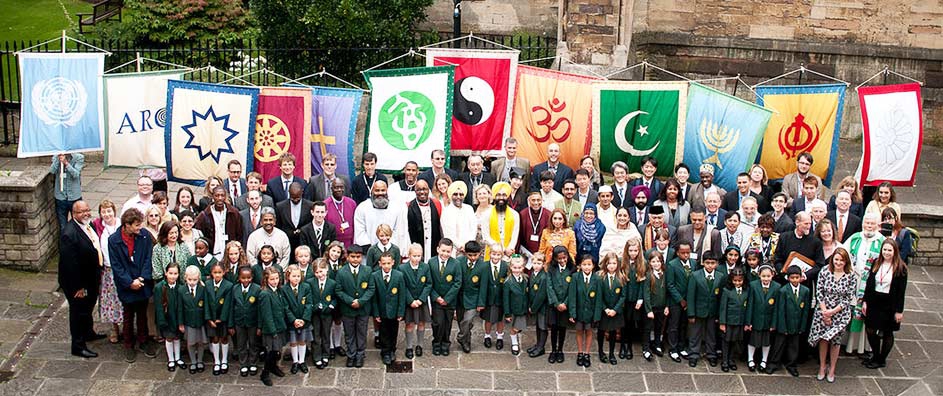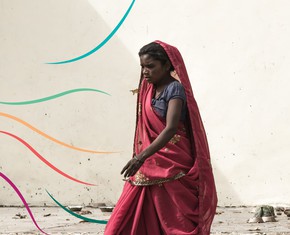The world is full of ideas but they are either fleeting or profitless or impractical or limited in their influence or confined within a narrow scope. The beaming shafts of the light of cosmic ideals must pierce through the hearts of men and the power of the Holy Spirit is necessary to carry into execution these noble thoughts of the age. Human power is limited in its influence. It can unite two persons, or two tribes, or two communities, or at the utmost two nations. At the same time it confesses that this unity is temporal and may be abrogated by the whim of either of the high contracting parties.
But the divine power unites nations and peoples and cements them together in the bond of brotherhood and peace for ages and cycles. – Abdu’l-Baha, Star of the West, Volume 5, p. 101.
This week, from September 25-27, more than 150 world leaders will attend the UN Sustainable Development Summit in New York. They will formally adopt an ambitious new sustainable development agenda, designed to help bring about a peaceful, prosperous and sustainable world. This momentous agenda will serve as the launch pad for action by the international community and by national governments to promote shared prosperity and well-being for all over the next decade and a half.

Religious representatives and UN officials meet to discuss how to support the United Nations’ Sustainable Development Goals.
The Baha’i International Community (BIC) and representatives of 23 other major religious traditions have offered to the United Nations (UN) ideas and action plans in support of the Sustainable Development Goals (SDGs)—called Agenda 2030, the UN’s primary development agenda for the next 15 years.
Referred to as “the Bristol Commitments,” contributions from the various religious groups were presented and discussed at a two-day event titled “Faith in the Future” in Bristol, UK earlier this month. The event was co-hosted by the United Nations Development Programme (UNDP) and the Alliance of Religions and Conservation (ARC).
In its contribution to the meeting, the Baha’i International Community elaborated on the vital role of religion in the success of the Sustainable Development Goals. In a statement, the BIC said:
Religion has been a feature of human civilization since the dawn of recorded history and has prompted countless multitudes to arise and exert themselves for the well-being of others. When true to the spirit of its transcendent founders, religion has been one of the most powerful tools for the creation of new and beneficial patterns of individual and collective life.
Yet the BIC also emphasized that “the link between religious conviction and service to the common good is by no means automatic. Clearly there is much to learn about how noble ideals become expressed in committed, sustained action.”
Addressing the Baha’i community’s efforts to contribute to development, the document highlights a range of endeavors, including educational processes to build capacity in individuals and groups, allowing them to take charge of their own moral, social, and economic development. In some cases, these efforts evolve over time and lead to the emergence of “the capacity to engage in relatively complex areas of activity and to establish working relations with agencies of government and civil society”.
Martin Palmer, ARC secretary general, highlighted that the commitment by religious leadership to be a force of social good in the context of the SDGs builds on a long legacy stretching back centuries.
The Director of UNDP’s team on the post-2015 development agenda, Mr. Paul Ladd, formally accepted the Bristol Commitments from the faith communities on behalf of the UN.
Speaking of the key role religious leadership will need to play, Mr. Ladd said, “More than 80 percent of the world’s people express a religious affiliation. Knowing this, it becomes clear that the UN needs to work closely with faith communities over the next 15 years if the new global goals for sustainable development are to be achieved.”
Daniel Perell, a representative of the BIC to the UN, addressed the attendees at the event about the transformational power of religion, which can tap human motivation at the deepest levels: “We can all think of examples where the central figures of our faiths have changed hearts, minds, and lives – the course of history – through seemingly small actions.
“It is these small actions, endowed with purity of motive that, in the aggregate, will change the world. We have the opportunity now to commit ourselves to a global, universal endeavor, agreed upon by the nations of the world. We can take this good start and make it transformational.”
The Bristol Commitments will be presented to the UN General Assembly this month, when the SDGs will be formally adopted.
















Comments
Sign in or create an account
Continue with Googleor